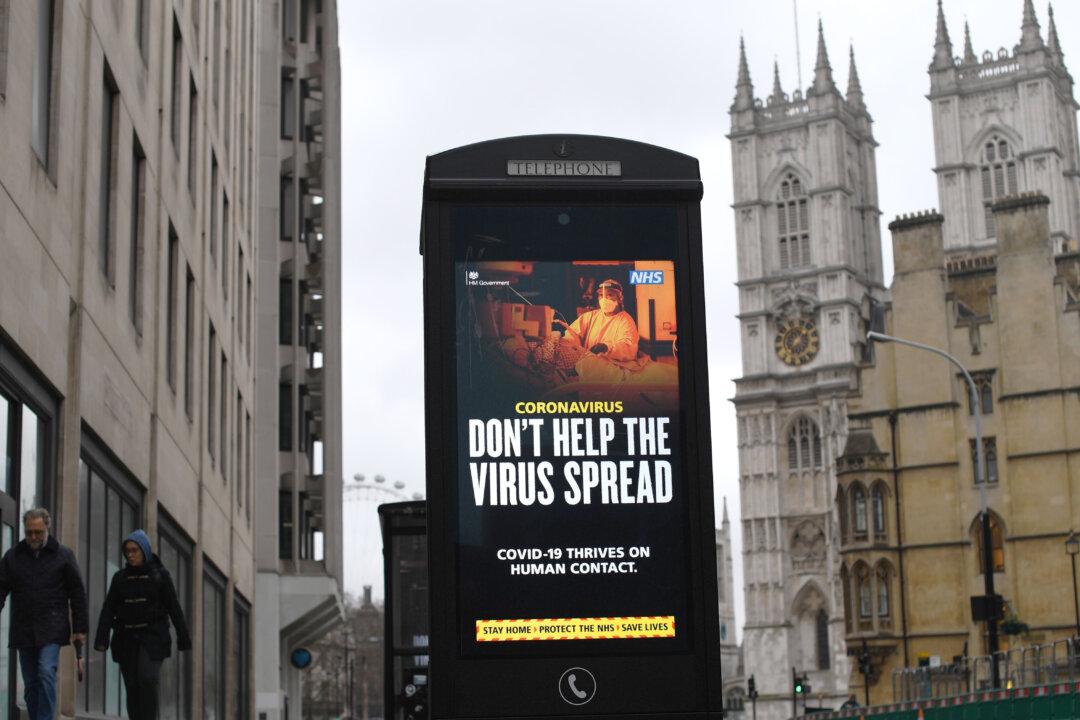British Prime Minister Boris Johnson has promised to publish a plan in a month’s time for taking England out of the ongoing CCP virus lockdown.
He told Parliament on Wednesday that the government intends to review the current lockdown measures in mid-February, once the most vulnerable had been offered the first dose of a vaccine for the CCP (Chinese Communist Party) virus, commonly known as the novel coronavirus.





